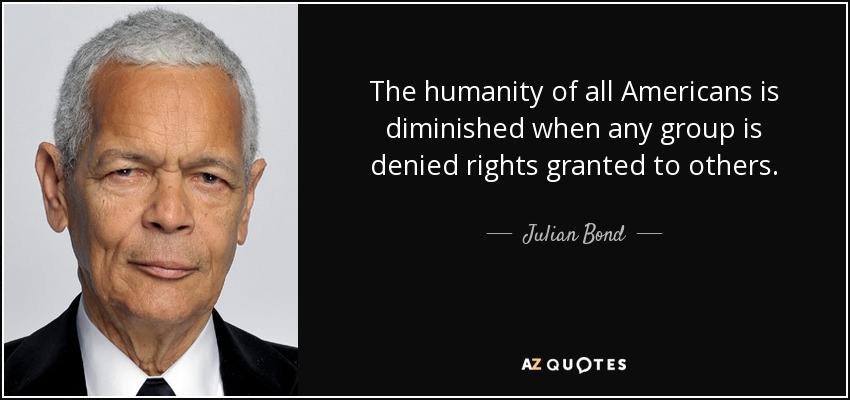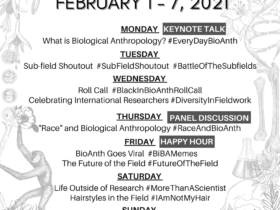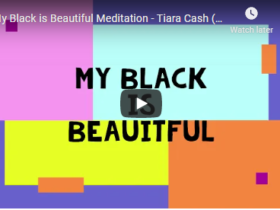This post was originally published by Sabrina T. Cherry, DrPH, MSPH, MTS on June 1, 2020 via her website: https://carterscorner23.wordpress.com/2020/06/01/justice-centered-life. She has granted Cite Black Authors permission to republish here.

On Friday night I had trouble pulling my eyes away from the screen. As much as I know about the damages of watching and re-watching traumatic images – police engaged in altercations with citizens, cars burning, people yelling obscenities at the camera and buildings being spray painted – I couldn’t pull away. As much as my heart ached, something tugged at me to keep watching.
These last few weeks have been especially tough. In the midst of a pandemic and moving into two and a half months of physical distancing, I feel weary, angry, and even sometimes fearful.
What will come of this all? And is this the “new normal” we were all waiting for?
On Saturday morning I woke up thinking about the parallels between COVID-19 and racism. An invisible, odorless and tasteless virus that has the potential to literally suck the very life out of its victims A virus that knows no boundaries or limitations. We walk about looking at one another, skeptical, and questioning, “Could you be the one?” and flinching at any hints of infection. And racism … much of the same. We can’t always see it, don’t always know it’s there, but when it arrives it – too – has the potential to suck the life and vibrancy out of families, communities and collectives. We walk around – I walk around – wondering, could it be you? Are you one of them? Is your intent to harm me? Are you infected?
This week I crumbled hanging for dear life to my faith and being faced yet again with the reality of our country. My heart crushed by the weight of bricks as I lay in bed with such an excruciating headache from how much I’d cried.
And lest you be misled, I do cry for George Floyd and Breonna Taylor and Ahmaud Arbery. But I also cried for the countless other untold and unknown stories of brutal killing and injustice. I cried for those who have spent decades locked behind bars due to unlawful convictions. I cried for the Black girls who are still missing and the Black boys who are over-policed, starting as early as elementary school. I cried that even with data, videos, eyewitnesses, and precedent, many perpetrators will walk free.
And each day I’ve woken up with a renewed commitment to lay my burdens at the feet of Jesus, trust in a faith that has never failed me – even when the outcome doesn’t look as I desired or prayed for – and move into the day as God calls me to. Each day I am reminded that even after the news moves on to the next sensational story and some transition to life as usual, justice work is everyday work. It never stops. It is not solely prompted by acts of injustice, nor halted when one case receives what we deem as “justice served”. ONE of the intentional and central ways I keep going is a reminder that I am called to and must live every facet of my life committed to justice.
Here are JUST three ways OF MANY I believe we can consistently commit to justice-centered lives:
- Civic Engagement: Rock the vote! Make your voice heard during national and local elections. Learn who your local leaders are. Engage others around you to exercise their right to vote. Vote responsible. Join your local NAACP or other civic organization. Support local civic engagement and organizations committed to social change.
2. Cultivate Intentional Community. During this time I have been reminded more than ever about the importance of carefully choosing who I spend my time with. I need those who walk alongside me as I replenish and recharge and when I need to cry and be comforted. If you are with me in my laughter, it is a necessity that you can also be there in my lament. Intentional communities lean into the conversation, even when they don’t know “the right words” to say. And above all else, there are never, ever silent about injustice. While feeling immense pain, it has been incredibly encouraging to have friends I consider allies – and those I never imagined reach out to ask how are you? What can I do? How can I do more? Please share your reading list. These seemingly minor efforts matter! Yes, there is longstanding and overdo work to do, but this step matters.
3. And finally Check Your Change! I BELIEVE with every fiber of my being in the power of the dollar. I encourage others to #1: invest in financial literacy, #2: eliminate unhealthy debt (credit cards, small loans etc.), and #3: SAVE, as well as invest. If you have extra skills that are needed, create a small business or do consulting work to enhance your streams of income. Teach your children and families about the importance of financial freedom. And scrutinize where, how and when we spend out hard-earned money.
Y’all these last few weeks have been heartbreaking and a day-to-day reality for all too many. I am grateful for the advocates who are on the front lines speaking up and speaking out. AND I am encouraged by the reminder to engage in this work long after we hear of the verdicts in these cases. Don’t stop. Keep going. Keep learning. Keep dismantling racism. Keep speaking out. Keep speaking up. Commit to this work every day in every way you can. This is absolutely a lifelong marathon. Period. Point blank. The work doesn’t stop. And make room for rest … to recharge, replenish and refuel.
Dr. Sabrina T. Cherry is an Assistant Professor and Public Health Faculty Mentor at the University of North Carolina Wilmington. She has worked as a Peace Corps volunteer in The Gambia, West Africa, collaborated on Community Health Needs Assessments (CHNA) for the Greater Atlanta Affiliate of Susan G. Komen, , provided assistance to faith-based grant recipients and worked on food insecurity and medication-adherence pilot study for Persons Living with HIV/AIDS (PLWHA). Her research focuses on the intersection of health disparities and social justice.
See Dr. Sabrina T. Cherry’s Listing in Our Database
Would you like to write for Cite Black Authors? Send us a note on our Contact Us page.


